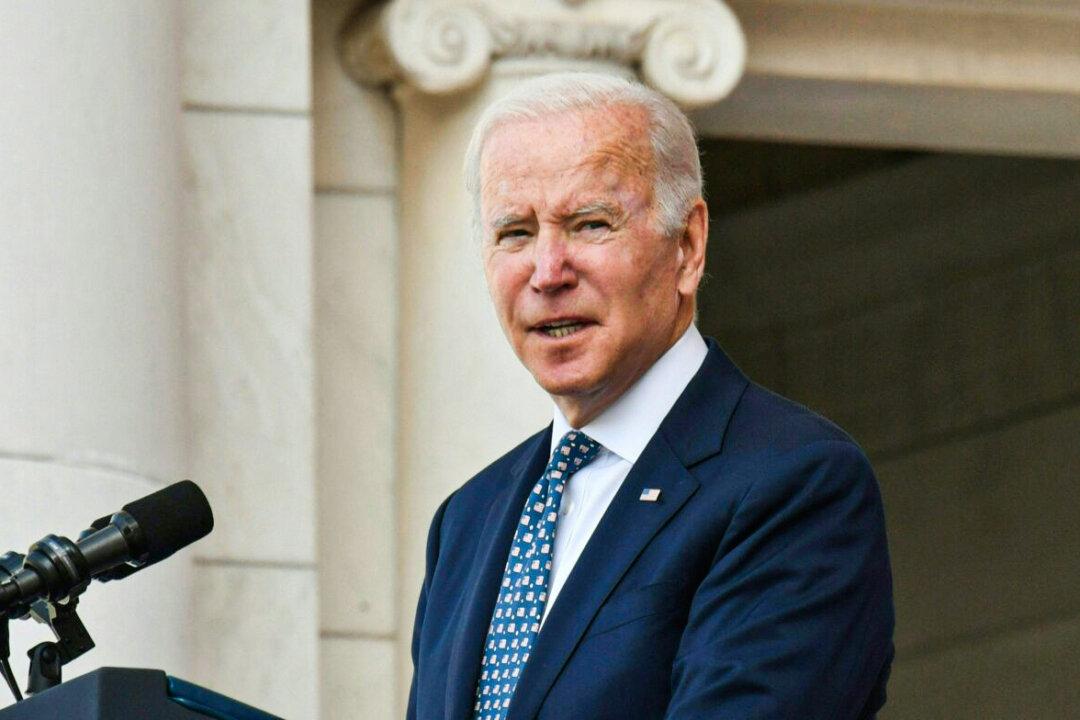President Joe Biden confirmed Wednesday that sending troops to Ukraine in the event of a Russian invasion is “not on the table.”
The president took questions Dec. 8 before departing for Kansas City, Missouri.

President Joe Biden confirmed Wednesday that sending troops to Ukraine in the event of a Russian invasion is “not on the table.”
The president took questions Dec. 8 before departing for Kansas City, Missouri.